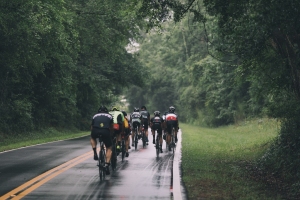No products in the cart.
Tour de France Rest Day
We are now 16 stages in to the 2016 Tour de France. It has been a year of surprises. Chris Froome punched a fan in the face, attacked the field on a downhill putting sizable time into his fellow contenders, crash caused by fans with one rider hitting the back of a support motorcycle, and even the yellow jersey slipping off the front in a breakaway. Uncommon events have made this year’s TdF an exciting one to say the least! One thing that never seems terribly exciting as a fan are the rest days. We are now on the second rest day and many individuals do not understand the preparation and focus that takes place on these important days away from racing. We often think of our own rest days as just that. It is a day off from training, to spend time on little more than relaxing, but, for the pros, there is no day off the bike. With 17 days of straight riding, with many of them being extremely high intensity, a day off the bike would mean certain disaster for the start of stage 17.
Most riders will do a minimum of two hours in the saddle. Yep, you read that correctly, two hours of riding, which for many of us would be a workout in itself! For these men getting on the bike is a way to loosen the legs up, increase blood flow throughout the body and aid in flushing wastes out of the tissues. Intensity is kept light, but, remember, they are not striving for gains. They are in search of what little snap is left in their legs when they depart from Bern, Switzerland tomorrow. Along with two hours on a bike, athletes are spending the day focusing on other modalities of recovery which can include but are not limited to: self-stretching, assisted stretching, tools such as foam rollers and getting massages. Keeping limber is very important and, after many days of hard riding, aches and pains begin to creep up that must continually be managed properly. Nutrition, as you can imagine, is a large part of a rest day. Athletes do not decrease their caloric intake from the previous race days. They continue to be eating machines and, with the luxury of not being to far from the hotel, dietitians are able to get timing of specific nutrients (carbohydrates, fats and proteins) dialed in more accurately to help expedite the recovery processes and protect the body from breaking down muscle tissue. Just like your lazy Sundays, athletes are able to sleep in a bit later and also take a short nap in the afternoon. A proper night’s sleep can help to refresh the mind and give the body much needed downtime. The afternoon nap gives the body a much needed bump of testosterone and other hormones that can help aid in and expedite recovery processes. Team Sky has even taken it a step further for the past several years and carries athlete’s beds with them throughout the race. Wouldn’t you like to sleep in your own bed every night before you had a big event? If you’ve ever wondered how you could train and recover more efficiently, we’d love to chat with you. Email us for a consultation.




